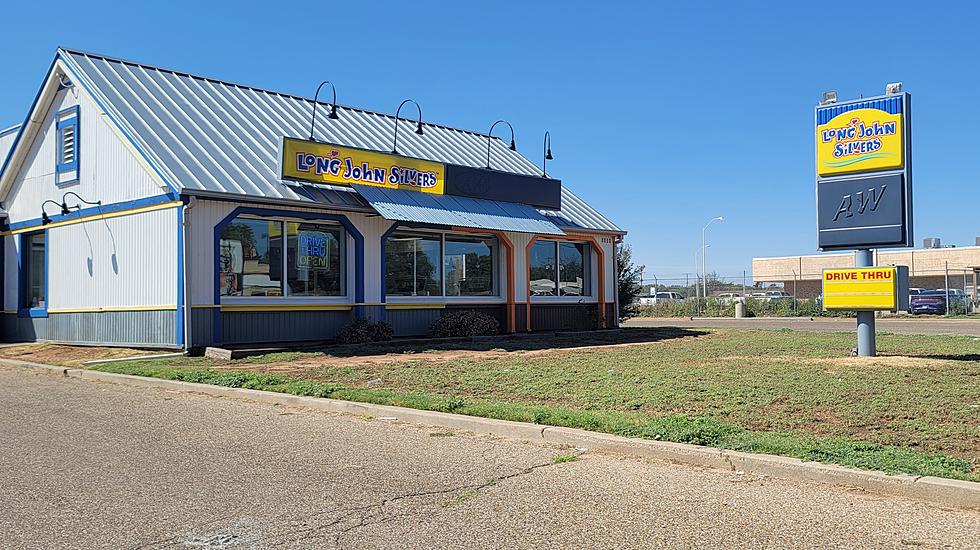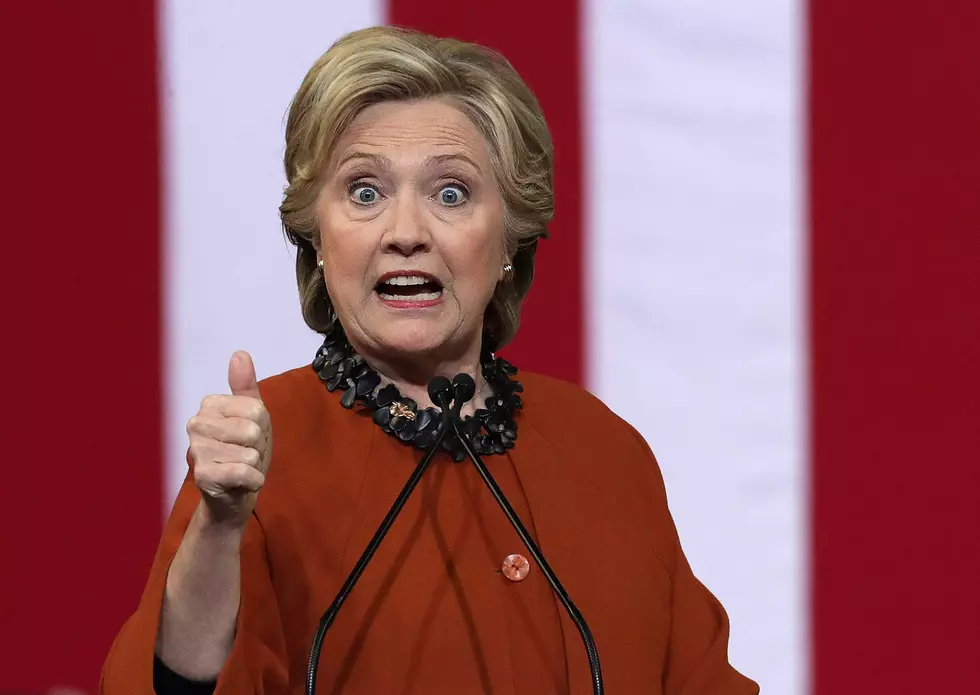
Chad’s Morning Brief: Fast Food Strikes Planned for This Week, Clinton Eyes 2016, and More
Here is your Morning Brief for the morning of December 2, 2013. Give me your feedback below and tune in to The Chad Hasty Show for these and many more topics from 8:30 to 11am. Remember, you can listen online at KFYO.com or on your iPhone/Android with the radioPup App.
More Fast Food Strikes Planned
Fast Food workers in 100 cities are planning a nation-wide strike this week because they don't believe they make enough money. According to the New York Times, these workers are again demanding $15 an hour wages.
Seeking to increase pressure on McDonald’s, Wendy’s and other fast-food restaurants, organizers of a movement demanding a $15-an-hour wage for fast-food workers say they will sponsor one-day strikes in 100 cities on Thursday and protest activities in 100 additional cities.
As the movement struggles to find pressure points in its quest for substantially higher wages for workers, organizers said strikes were planned for the first time in cities like Charleston, S.C.; Providence, R.I.; and Pittsburgh.
The protests have expanded greatly since November 2012, when 200 fast-food workers engaged in a one-day strike at more than 20 restaurants in New York City, the first such walkout in the history of the nation’s fast-food industry.
“There’s been pretty huge growth in one year,” said Kendall Fells, one of the movement’s main organizers. “People understand that a one-day strike is not going to get them there. They understand that this needs to continue to grow.”
The movement, which includes the groups Fast Food Forward and Fight for 15, is part of a growing union-backed effort by low-paid workers — including many Walmart workers and workers for federal contractors — that seeks to focus attention on what the groups say are inadequate wages. The fast-food effort is backed by the Service Employees International Union and is also demanding that restaurants allow workers to unionize without the threat of retaliation.
Officials with the National Restaurant Association have said the one-day strikes are publicity stunts. They warn that increasing pay to $15 an hour when the federal minimum wage is $7.25 would cause restaurants to rely more on automation and hire fewer workers. Industry officials say that only a small percentage of fast-food jobs pay the minimum wage and that those are largely entry-level jobs for workers under 25.
Backers of the movement for higher pay point to studies saying that the average age of fast-food workers is 29 and that more than one-fourth are parents raising children.
Simon Rojas, who earns $8.07 an hour working at a McDonald’s in South Central Los Angeles, said he would join Thursday’s one-day strike. “It’s very difficult to live off $8.07 an hour,” said Mr. Rojas, 23, noting that he is often assigned just 20 or 25 hours of work a week. “I have to live with my parents. I would like to be able to afford a car and an apartment.”
Mr. Rojas said he had studied for a pharmacy technician’s certificate, but he had been unable to save the $100 needed to apply for a license.
On Aug. 29, fast-food strikes took place in more than 50 cities. This week’s expanded protests will be joined by numerous community, faith and student groups, including USAction and United Students against Sweatshops.
So the example the NYT uses is a guy who lives with his parents yet can't save $100? Hmm, sounds like he needs to grow up and manage his money. If you don't like what you're getting paid, find a job somewhere else. The reason why Fast Food workers are paid minimum wage is because it's not a highly skilled job. Just about anyone could do it.
Clinton Looking Ahead
Interesting story out of the New York Times about Hillary Clinton looking to rebuild relationships in the black community.
Inside Bright Hope Baptist Church, the luminaries of Philadelphia’s black political world gathered for the funeral of former Representative William H. Gray III in July. Dozens of politicians — city, state and federal — packed the pews as former President Bill Clinton offered a stirring eulogy, quoting Scripture and proudly telling the crowd that he was once described as “the only white man in America who knew all the verses to ‘Lift Every Voice and Sing.’ ”
But it was the presence and behavior of Hillary Rodham Clinton that most intrigued former Gov. Edward G. Rendell: During a quiet moment, Mrs. Clinton leaned over to the governor and pressed him for details about the backgrounds, and the influence, of the assembled black leaders.
Since Mrs. Clinton left the secretary of state post in February, she and her husband have sought to soothe and strengthen their relationship with African-Americans, the constituency that was most scarred during her first bid for the presidency. Five years after remarks by Mr. Clinton about Barack Obama deeply strained the Clintons’ bond with African-Americans, the former first family is setting out to ensure that there is no replay of such trouble in 2016.
Mrs. Clinton used two of her most high-profile speeches, including one before a black sorority convention, to address minority voting rights — an explosive issue among African-Americans since the Supreme Court struck down part of the Voting Rights Act in June. A month after Mr. Gray’s funeral, Mrs. Clinton and her husband both asked to speak at the service for Bill Lynch, a black political strategist who is credited with the election of David N. Dinkins as mayor of New York, and stayed for well over two hours in a crowd full of well-connected mourners. And there have been constant personal gestures, especially by the former president.
“I think that this is an effort to repair whatever damage they felt may have been done in ’08,” said the Rev. Al Sharpton. Mr. and Mrs. Clinton “know that there are some who have lingering questions, if not antipathy, towards them,” Mr. Sharpton said.
This task has taken on new urgency given the Democratic Party’s push to the left, away from the centrist politics with which the Clintons are identified. Strong support from black voters could serve as a bulwark for Mrs. Clinton against a liberal primary challenge should she decide to run for president in 2016. It would be difficult for a progressive candidate, such as Senator Elizabeth Warren of Massachusetts, to rise if the former first lady takes back the black voters she lost to Mr. Obama and retains the blue-collar white voters who flocked to her.
Her appearance before the sisters of Delta Sigma Theta in July, which she opened by offering condolences to the family of Trayvon Martin, the 17-year-old who was killed in Florida last year, and her voting rights address to the American Bar Association in August drew significant attention among black leaders.
“That speech that she gave regarding voting suppression was very, very significant and meaningful,” said Representative James E. Clyburn, a South Carolina Democrat and the highest-ranking African-American in Congress. Mr. Clyburn, who clashed sharply with Mr. Clinton in 2008, said Mrs. Clinton was “now in a very good place with the African-American community.”
Tavis Smiley, a black commentator, argued that this was because “they have now learned the important lesson that there’s a distinction between a coronation and an election.”
The Clintons appear to be taking nothing for granted. Mr. Clinton did not just attend the 50th anniversary of the March on Washington on the National Mall in August, but alsoshowed up at Arlington Cemetery in June to honor Medgar Evers on the 50th anniversary of his assassination. In May, Mr. Clinton was the commencement speaker at Howard University in Washington, posing for pictures with all who asked and sitting on stage next to one of the school’s best-known graduates, L. Douglas Wilder, the nation’s first elected black governor from Virginia, a longtime friend and rival of Mr. Clinton’s.
In private, Mr. Clinton is frequently in touch with black leaders. Representative Elijah E. Cummings, a Maryland Democrat and the ranking member on the House panel on government oversight, got a handwritten note from the former president over the summer commending him on his leadership on the committee.
“He has made an effort to reach out over and over again through the years,” Mr. Cummings said.
The congressman recalled Mr. Clinton’s visits to his church in Baltimore and a phone call he got from the former president inquiring about the health of his mother, whose name Mr. Clinton recalled.
Such personal touches, for which the Clintons are famous, have never been more important as Mrs. Clinton considers a second presidential bid.
Other Top Stories:
These and many more topics coming up on today’s edition of The Chad Hasty Show. Tune in mornings 8:30-11am on News/Talk 790 KFYO, streaming online at kfyo.com, and now on your iPhone and Android device with the radioPup App. All guest interviews can be heard online in our podcast section after the show at kfyo.com.
More From News/Talk 95.1 & 790 KFYO









